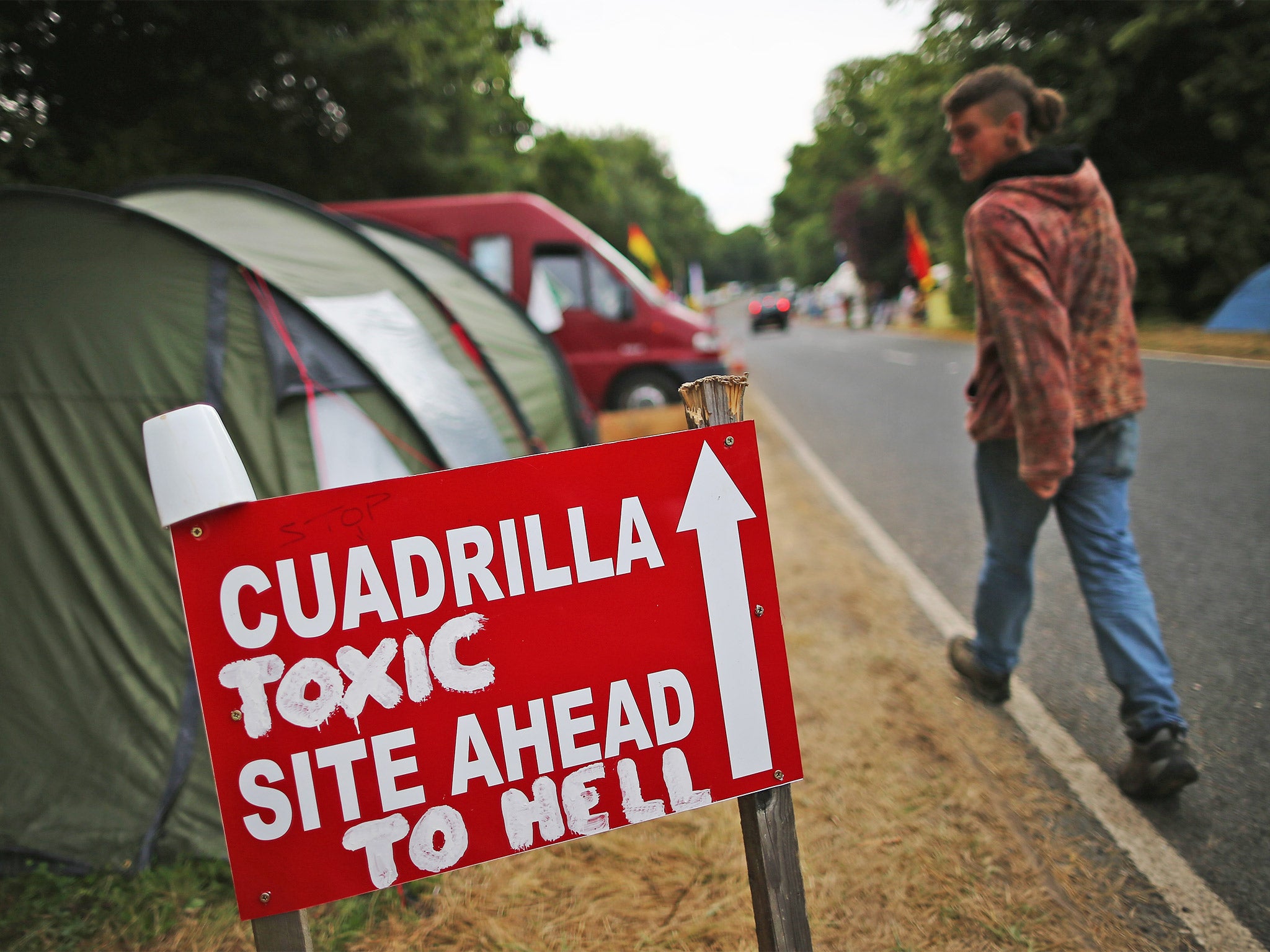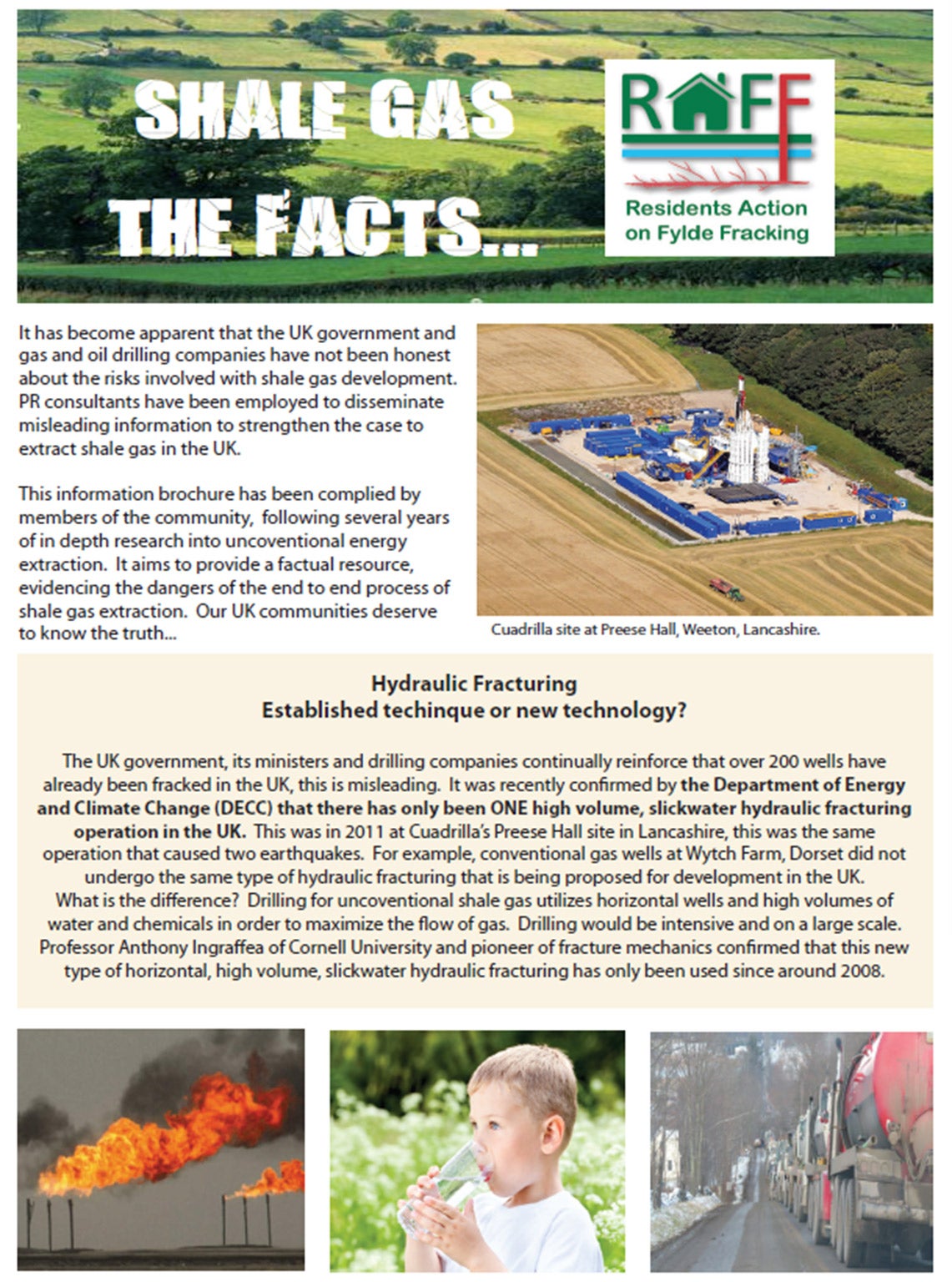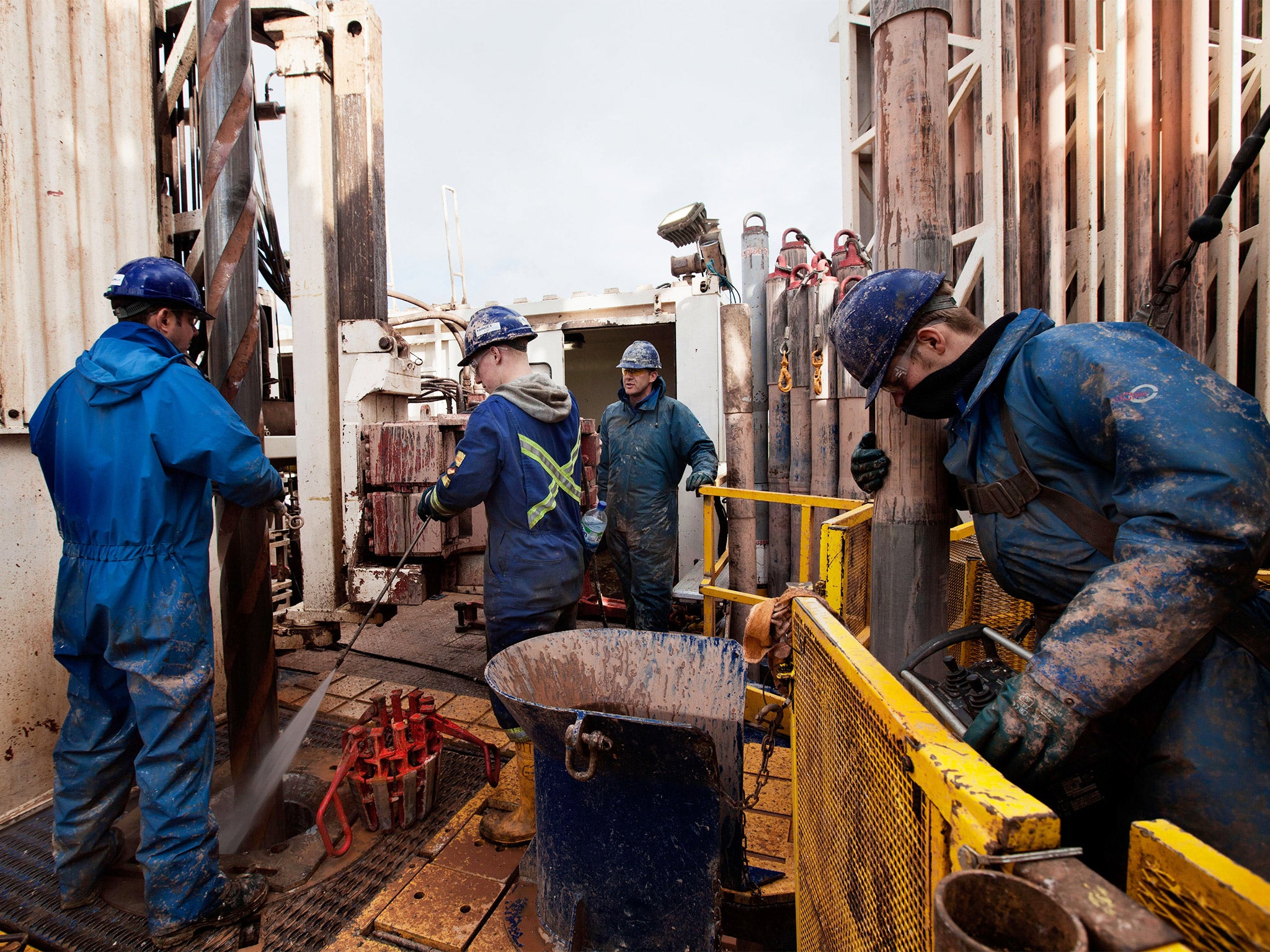Anti-Cuadrilla group's fracking protest leaflet misleading, says watchdog
Lancashire residents’ group said to have exaggerated size of Cuadrilla’s shale gas plans

An anti-fracking brochure produced by activists will no longer be distributed after the UK advertising watchdog decided it was misleading.
In a setback for the anti-fracking lobby, the Advertising Standards Authority (ASA) found that sections of the leaflet from the Residents Action On Fylde Fracking (Raff) protest group misinterpreted scientific data around shale gas extraction and exaggerated the size and scale of planned fracking operations in the region.
Energy firm Cuadrilla hopes to use the controversial technique, which involves water, sand and what it claims is a non-hazardous chemical being pumped into shale rock at high pressure to extract gas, in up to four test wells planned in the Lancashire Bowland basin.

The firm believes the proposed sites could help the area become the UK’s leading shale gas resource. A decision is expected by local planning authorities by the end of the month amid fierce local opposition over pollution and earthquake fears.
Raff says fracking has been associated with air and water pollution, radioactive waste and despoliation of vast tracks of land in the US. However, the informal ASA decision upheld a number of complaints in a flyer handed out at a meeting last summer. These included allegations over the size of fracking plans in Lancashire and the nature of the chemicals set to be used.
The leaflet, entitled “Shale Gas The Facts…”, was reportedly distributed at village meetings around Inskip in Lancashire, held by Raff in March and again elsewhere in the area in August.
It read: “It has become apparent that the UK government and the gas and oil drilling companies have not been honest about the risks involved with shale gas development. PR consultants have been employed to disseminate misleading information to strengthen the case to extract shale gas in the UK.”
Ken Wilkinson, who made the complaint to the ASA alongside retired local vicar Michael Roberts, said he was “sick to death of all the nonsense around fracking” and the “scientific drivel spouted” by anti-fracking campaigners.

Mr Wilkinson, who worked in the oil and gas industry for 12 years, said: “My view is that if we are going to have a discussion about fracking we should stick to the facts. After that my view is that generating renewable energy is simply nonsense. We haven’t got enough space for the windmills and what happens when the wind isn’t blowing.”
Bob Dennett, a member of Raff, said: “Every single claim in that brochure has been substantiated by peer-reviewed science. Ever since we started this campaign we have tried to engage in public debate with the shale gas industry, but they have consistently refused to be involved in that debate.”
It is understood that the informal decision by the ASA upheld a number of specific complaints about the brochure, but also found that other claims made in the brochure, including those over burning gas flares and a lack of fracking-specific environmental regulation, were valid.
According to Raff, the brochure was “done with” by the time of the ASA complaint and a new version is being prepared. Due to a change in regulations it will not be subject to the same ASA rules.
A spokesperson for the ASA said: “The Raff was investigated by the ASA following one complaint about their leaflet, however they agreed to not repeat or redistribute the ad and the case was informally resolved.”
Join our commenting forum
Join thought-provoking conversations, follow other Independent readers and see their replies
Comments
Bookmark popover
Removed from bookmarks